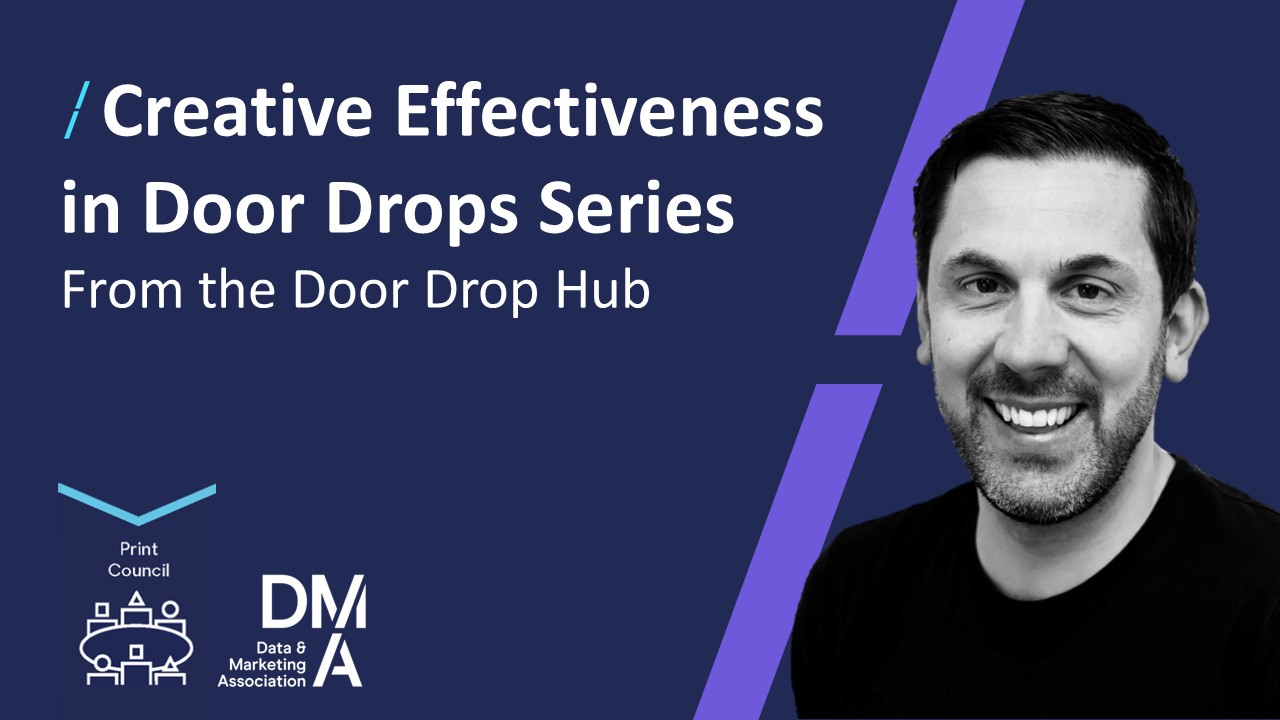Accelerate Your Career: Creating and Communicating Your Personal Brand
20 Feb 2015
Yesterday we hosted over 50 bring young things at the DMA to talk about how to get ahead in marketing and create a personal brand that will help you stand out. Everyone agreed was a great event so make sure you sign up for the next one!.
The DMA team, Richard Dutton, Stephen Chandler, Mark Brill and I all took turns to share some insights and inspire these rising stars into action.
I talked about how building your personal brand can help you engage and build rapport with C-Suite and board-level colleagues.
Introducing yourself with impact
We started we a little exercise to liven things up and get the neural pathways firing. You can try this too.
How do you introduce yourself in a professional environment? Is it different to how you introduce yourself socially? Without thinking too much, go ahead and introduce yourself, out loud, to some imaginary senior or influential figure (your CEO, your boss’s boss, a head-hunter, someone at a networking event or conference).
How did that make you feel? Nervous? Not exactly sure what to say? Did you make the right impression? Did you waffle?
Try it again. This time think of 3 words to describe you.
Was that easier? Harder? Most people found the first exercise easier – because saying less means thinking more. But saying less often has more impact!
Throughout your career, you have many opportunities to present yourself to new people. People you want to impress. So how do you make the right first impression?
Well, it starts way before you ever meet someone. To articulate yourself well, succinctly, in a meaningful and memorable way, you need to know who you are and what value to have to offer the world. That’s essentially the power of personal branding.
Invest in your personal brand
Personal branding has been around for decades. Tom Peters was an early proponent back in 1997 and his article “The Brand Called You” is still a worthwhile read.
There are many reasons why personal branding has endured and is having somewhat of a renaissance. It’s not rocket science. The career marketplace has never been more competitive, chaotic, and difficult to manoeuvre. It’s not just about standing out – it’s about launching your career in the right direction.
How you express yourself you can shape the perception others have of you. And you want people to know how uniquely fabulous you are, don’t you? On the flipside, if you don’t define your personal brand – your market will.
People buy people – so make it quicker and easier for them to get to know the real you and the value you bring. An effective personal brand can elevate you into someone people want to know and work with.
First impressions often happen online – so its essential you create an authentic, clear and consistent view of yourself across the Internet. Consistency builds trust and reinforces your story.
Persona branding can work on a deeper level too. It can help you enjoy your working life more. Going through the process of defining your brand (more on that next) can help you align who you are with what you do. Which makes for a more fulfilling and successful career. You will make better choices (choosing roles and companies that really fulfill your goals and add to your brand) and you will flourish.
And, of course, one of the main benefits of a personal brand is helping you standing out from your peers. How did Marissa Mayer land the CEO role at Yahoo? According to Laura Ries, brand strategist and author, it was because she has what most people don’t – she has a brand. “As Google’s 20th employee and first woman engineer, she is a ‘brand.’ Marissa Mayer is the woman that made Google successful.”
Personal branding, done well, cannot only help you communicate with the C-Suite; it can fast track you to the C-Suite.
It’s worth saying the obvious though. A personal brand will is not a shortcut to success. You need to work hard. Some say doing good work matters more than your personal brand. I’d say doing good (great!) work is a given. But a personal brand gives you an edge. In the same way a slick ad campaign won’t sell a crappy product – you’ve got to put the work in. “Work Hard & Be Nice To People” was my mantra long before it was a popular poster.
Creating your personal brand is a no-brainer – so how do you go about it?
Creating your personal brand
This will take some time. And it’s an investment in yourself so you don’t want to rush or shortcut. There are many approaches and tools to help you along your way – I’ve made reference to a few of them here and in the reading list at the end. Here are 5 simple steps to get you from A to B(rand)!
Step 1: Reflect
Go find a quiet, comfy place and put your thinking cap on – you are going to ponder some deep and meaningful questions! (Write things down – pen and paper, laptop, fag packet – what ever you prefer). Where are you now? How did you get there? Where do you want to go next? What are your values? Are you happy in your chosen field or do you want to shift? How high do you want to fly? What energises you?
Step 2: Assess your skills
More thinking! What are your core skills? Hard skills? Soft skills? Do you have a superpower? Which skills match the things you most enjoy doing? What skills do you want to learn? How have you demonstrated these skills? What are you recognised for? How do people describe you?
There are some great resources out there to structure your thinking. I’ve tried “What Colour Is Your Parachute?” (buy the book or iPad app), “Your Best Year Yet” (great little book) and “Ditch Dare Do” (which has some great, free online resources).
The Ditch Dare Do approach helps you find your unique value by guiding you through thinking about:
* Authenticity – the real you, what you love doing
* Differentiation – you unique value, what you are great at doing
* Relevance – what makes you compelling to employers
In the centre you will uncover an insight that sparks the “big idea about you” and helps you build you brand. Which is step 3.
Step 3: Build your brand
You switch from thinking mode into doing mode now – so pick up the pace. Prototype quickly and get feedback from trusted friends and colleagues. Then iterate. This may take a few goes to get something that feels authentically you.
If you are committed to this branding lark, and accelerating your career, then seriously recommend you find a coach or mentor. They will not only guide you through this process more quickly – they will truly help you up your game.
Decide what brand assets and content you need to help you tell your story – more on that next.
Between your day job and sparkling social life you will have a finite amount of time to work on all of this. So, be laser-focused on things that will expand your visibility, network and influence.
Step 4: Position yourself
What’s your value proposition? It’s time to define your positioning statement. It’s the same principle as the “three word exercise” but with (a few) more words.
This will form the basis of your Elevator Pitch – which, in turn, can be used across your brand assets (Twitter, LinkedIn and other social profiles, your resume, blog, email signature etc.).
As you advance, think about how you can reframe the experience you gain as reputation…. it's a very powerful way of communicating. For example, “I’ve created new teams and services” becomes “I have a reputation for building profitable new capabilities” or “I have a reputation for delivering growth where others can’t”. It packs more of a punch.
Step 5: Create your brand plan
Now its time to start to summarising your thinking into a succinct plan. Write short statements for the following areas:
Vision: Where do you want to be in 5-10 years?
Goals: What would you like to accomplish?
Purpose: Why do you do what you do?
Values: What do you believe in?
Issues: What’s standing in your way?
Strategy: How will you get there? (focus is essential here)
Tactics: List of what you need to execute the plan (e.g. update your resume, spend more time networking and tweeting each day, make sure your social profiles are consistent, get a better professional photo, go on that training course, put your hand up for more project work etc.). Make the SMART actions.
A great way to build your presence online is to have your own blog or website. If you feel you don’t have the time or skills then try one of the great tools out there like about.me, branded.me and flavors.me to create your own presence easily online. I have all three but am particularly impressed with new player branded.me.
Communicating your personal brand
You’ve invested quality time in creating your brand - now it’s time to communicate it. Creating your brand assets puts your brand out there proactively.
It will also help you to respond well – and on brand - in those spontaneous moments. You’ll know exactly what to say when you bump into your CEO in the lift, or meet new people at a conference.
Your confidence will soar because you know you are representing yourself authentically and in the best possible light.
All the thinking and preparation on your personal brand will come into its own and you will consistently present yourself as “someone to know”. It will get you noticed.
Tips from the top
I’ll finish with some tips from the top. Personal branding can help you get noticed by the C-Suite. It also helps if you think like them. I’ve scanned the World Wide Web for advice from CEOs on getting ahead – so you don't have to. Aren’t I kind? (part of my brand you might say?!) Here’s some common themes I observed:
Show commitment: "The truth is, so few people really jump on their jobs, you really will stand out more than you think. You will get noticed if you really go for it.” Warren Buffett
Be enthusiastic: Having a great attitude really matters.
Show initiative: Put yourself forward. “Embrace tough assignments” Indra Nooyi PepsiCo Chairman and CEO
Speak up: Bosses aren’t mind readers!
Be adaptable: Look for the opportunity to expand your skills and take on new challenges.
Be succinct: They are intelligent and busy people – don’t waste their time.
If you’re still reading then I’d like to say thank you and well done! You are demonstrating great commitment and enthusiasm – you’ll go far! If you have a thirst for even more insights then I’ll leave you with a few more things to read.
Good luck and get branding!
@peepa
Reading List
The career playbook: essential advice for today's aspiring young professional
Top 10 tips on how to get ahead in marketing by next generation winners
Build A Personal Brand, Not Just A Career
The 21st century CV. How personal branding can help you nail your dream job





Please login to comment.
Comments